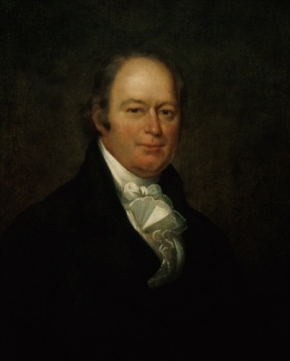You are here
Circuit Court Opinions:
Associate Justice William Johnson, Jr., Bank of the United States v. Deveaux (1808)

Bank of the United States v. Deveaux, 2 F. Cas. 692 (C.C.D. Ga. 1808) (No. 916) [Sixth Circuit], reversed, 9 U.S. 61 (1809)
Deveaux turned on the question of whether the Bank of the United States had the right to sue in federal court on the basis of diversity jurisdiction. The Bank’s complaint against a citizen of Georgia recited that its president and directors were citizens of Pennsylvania. Justice Johnson, however, found that the Bank’s officials were “so totally sunk in their corporate state of existence” that their individual citizenship was irrelevant. “A corporation cannot with propriety be denominated a citizen of any state,” he wrote. The import of Johnson’s decision was that a corporation could sue or be sued in federal court only in a case arising under the Constitution, laws, or treaties of the United States (otherwise known as federal question jurisdiction) and never in a diversity of citizenship case.
The Supreme Court, in an opinion by Chief Justice John Marshall, reversed Johnson’s decision. Although corporations could not themselves be citizens, wrote Marshall, their citizenship for purposes of diversity jurisdiction should be determined by the citizenship of their individual members. As corporations grew, however, they were frequently made up of individuals from several states. The requirement of complete diversity, i.e., that no plaintiff share citizenship with any defendant, made it less likely that a federal court would be able to exercise diversity jurisdiction over a suit involving a corporation. The Supreme Court overruled Deveaux in Louisville, Cincinnati, and Charleston Rail-road Co. v. Letson (1844), in which it held that a corporation was to be considered a citizen of its state of incorporation. The change to single-state citizenship for corporations made it far easier for them to sue and be sued in federal court.
